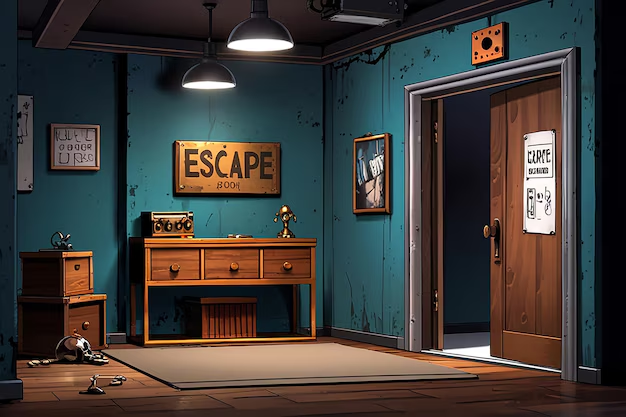A new dimension has been added to traditional problem-solving entertainment with immersive puzzle experiences in recent years. Adventure escape rooms stand at the forefront of this evolution, offering participants unique opportunities to test their wit and collaborative skills in captivating scenarios.
Modern escape rooms blend carefully crafted puzzles with atmospheric storytelling. Participants find themselves aboard ancient pirate ships, inside medieval castles, or navigating through futuristic space stations. Each setting presents its own set of challenges, requiring teams to decode messages, manipulate objects, and uncover hidden pathways within limited timeframes.
- Exploration of historical mysteries
Historical mystery rooms transport players back in time, challenging them to solve crimes from different eras. These adventure escape rooms often feature period-accurate decorations and props, creating an authentic atmosphere where teams must piece together clues from the past while racing against time. Players might find themselves investigating Victorian-era mysteries or unravelling ancient Egyptian tomb secrets.
- Horror and supernatural experiences
For those seeking intense thrills, horror-themed escape rooms deliver spine-tingling challenges. The Insomnia Escape Room DC specializes in creating atmospheric tension through careful lighting, sound design, and unexpected story elements. These rooms often require players to maintain their composure while solving complex puzzles under pressure.
- Archaeological adventures and lost civilizations
Teams can embark on quests to discover lost artifacts and ancient wisdom in archaeology-themed rooms. These experiences often involve deciphering ancient languages, manipulating elaborate mechanical devices, and understanding the customs of forgotten cultures to progress through each challenge.
- Hidden passages and secret societies
Many modern facilities, including Insomnia Escape Room DC, incorporate multiple layers of mystery into their experiences. Rooms themed around secret societies challenge players to uncover hidden agendas, decode cryptic messages, and expose centuries-old conspiracies through innovative puzzle design and storytelling.
- Heist and espionage challenges
These high-stakes scenarios put players in the roles of master thieves or secret agents. Teams must demonstrate quick thinking and precise coordination to bypass security systems, crack safes, and complete their missions before time expires. These rooms often feature sophisticated electronic components and multiple solution paths.
- Fantasy realm adventures
Magical worlds filled with enchanted objects and mystical creatures provide unique puzzle-solving opportunities. Players might need to brew potions, cast spells, or interact with magical artifacts to progress quest. These rooms often incorporate special effects and innovative mechanisms to create truly immersive experiences.
- Natural disaster scenarios
These intense rooms challenge teams to work under pressure as they face simulated environmental threats. Players might need to prevent volcanic eruptions, escape rising flood waters, or find safety during earthquakes while solving interconnected puzzles that test both logic and resourcefulness.
- Military and tactical operations
Strategic thinking takes centre stage in military-themed rooms where teams must coordinate complex operations. These experiences often include Morse code interpretation, map reading, and tactical problem-solving while maintaining strict time constraints.
- Time travel paradoxes
Complex storylines involving temporal mechanics create unique puzzle opportunities. Players need to solve challenges across different periods, ensuring their actions in the past don’t create paradoxes that affect their future success.
- Art gallery mysteries
These sophisticated rooms challenge participants to understand artistic techniques, cultural references, and historical contexts while solving art-related puzzles. Teams need to recognize painting styles, interpret symbolic meanings, or recreate famous artworks to progress.
Successful completion of these varied challenges requires teams to develop effective communication, time management, and analytical thinking skills. Groups must learn to delegate tasks, share discoveries, and combine different perspectives to overcome increasingly complex obstacles.







